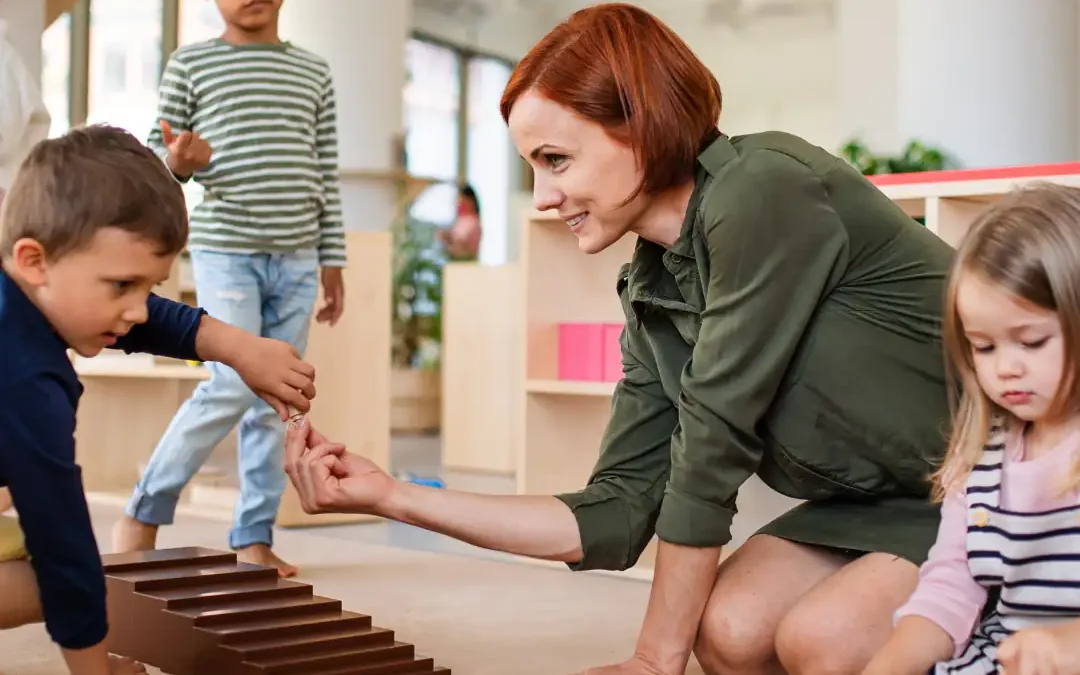Creativity and innovation are essential skills in today’s rapidly evolving world. As parents and educators, fostering these qualities in children from an early age is crucial to preparing them for success in the future. One of the most effective ways to cultivate creativity and innovation is through Montessori education.
- Child-centered approach
At the core of Montessori education is a child-centered philosophy that respects each child’s unique learning style, pace, and interests. Montessori classrooms create an atmosphere where curiosity drives learning by giving children the freedom to choose their activities and explore topics that captivate them, encouraging a sense of ownership over their learning. When children have the autonomy to follow their passions, they are more likely to engage in creative thinking and problem-solving, laying the foundation for innovative ideas.
- Hands-on Learning
Montessori education emphasizes experiential, hands-on learning, which plays a vital role in nurturing creativity. Rather than passively receiving information, children in Montessori classrooms engage with materials that require them to experiment, test, and problem-solve. The tactical sensory-rich nature of Montessori materials encourages children to think critically and explore different solutions to challenges.
For example, Montessori math materials like the Golden Beads allow children to physically manipulate numbers, fostering a deeper understanding of mathematical concepts. This hands-on approach not only aids in academic learning but also helps children develop critical thinking and creativity as they explore multiple pathways to solve problems. These opportunities for trial and error help children view mistakes as part of the learning process.
- Mixed-age classrooms and peer collaboration
Montessori classrooms are typically composed of mixed-age groups, which provides a unique opportunity for collaboration and peer learning. Younger children observe and learn from older students, while older children gain confidence by mentoring their young peers. This collaborative dynamic fosters a sense of community, encouraging children to share ideas, collaborate on projects, and think creatively together.
- Encouragement of Independence and Self-Expression
Montessori education places a strong emphasis on independence, allowing children to take control of their own learning. When children are given the space to make their own decisions, they are more likely to experiment with new ways of solving problems or expressing themselves.
In addition, Montessori classrooms provide ample opportunities for self -expression through activities like art, music, and creative storytelling nurturing a sense of creativity that can be applied in many areas of life. Children are encouraged to pursue their interests in a way that feels meaningful to them, whether that involves building complex structures with blocks or painting an imaginative scene.
- Focus on real-world skills
Montessori education integrates real-world skills into the curriculum, providing children with practical experiences that spark innovation. Activities like cooking, gardening, or working on community projects allow children to see the tangible impact of their creative ideas. By applying their creativity to real-life scenarios, children gain confidence in their ability to innovate and problem-solve.
Additionally, Montessori encourages project-based learning, where children work on long-term projects that require planning, creativity, and critical thinking. This approach mirrors real-world problem-solving and innovation, preparing children to think creatively in any situation they may face in the future.
Montessori education provides a fertile ground for nurturing creativity and innovation in children. By offering a child-centered, hands-on learning environment, encouraging independence, and fostering a growth mindset, Montessori classrooms create the perfect conditions for children to explore their creativity and develop innovative solutions to challenges. As parents and educators, supporting children’s natural curiosity and creative potential through Montessori education can empower them to become the innovative thinkers of tomorrow.

